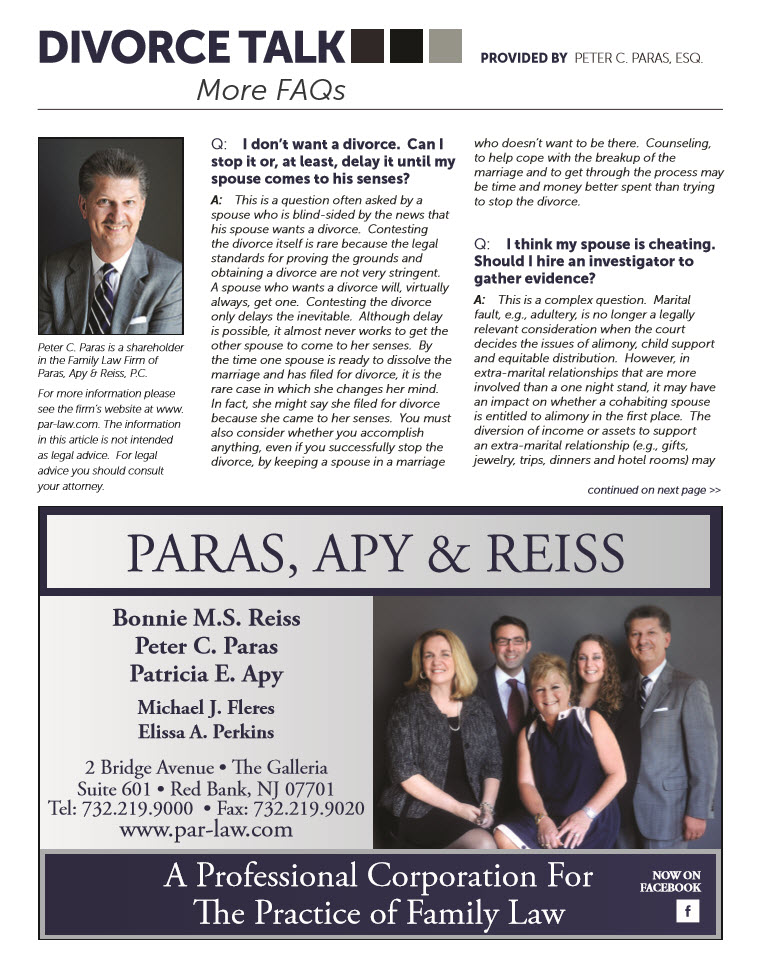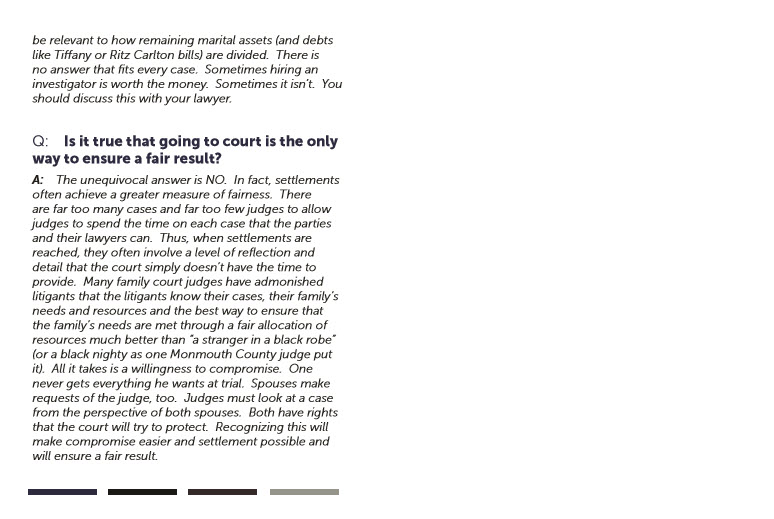Q: I don’t want a divorce. Can I stop it or, at least, delay it until my spouse comes to his senses? A: This is a question often asked by a spouse who is blind-sided by the news that his spouse wants a divorce. Contesting the divorce itself is rare because the legal standards for proving the grounds and obtaining a divorce are not very stringent. A spouse who wants a divorce will, virtually always, get one. Contesting the divorce only delays the inevitable. Although delay is possible, it almost never works to get the other spouse to come to her senses. By the time one spouse is ready to dissolve the marriage and has filed for divorce, it is the rare case in which she changes her mind. In fact, she might say she filed for divorce because she came to her senses. You must also consider whether you accomplish anything, even if you successfully stop the divorce, by keeping a spouse in a marriage
who doesn’t want to be there. Counseling, to help cope with the breakup of the marriage and to get through the process may be time and money better spent than trying to stop the divorce.
Q: I think my spouse is cheating. Should I hire an investigator to gather evidence? A: This is a complex question. Marital fault, e.g., adultery, is no longer a legally relevant consideration when the court decides the issues of alimony, child support and equitable distribution. However, in extra-marital relationships that are more involved than a one night stand, it may have an impact on whether a cohabiting spouse is entitled to alimony in the first place. The diversion of income or assets to support an extra-marital relationship (e.g., gifts, jewelry, trips, dinners and hotel rooms) may
be relevant to how remaining marital assets (and debts like Tiffany or Ritz Carlton bills) are divided. There is no answer that fits every case. Sometimes hiring an investigator is worth the money. Sometimes it isn’t. You should discuss this with your lawyer.
Q: Is it true that going to court is the only way to ensure a fair result? A: The unequivocal answer is NO. In fact, settlements often achieve a greater measure of fairness. There are far too many cases and far too few judges to allow judges to spend the time on each case that the parties and their lawyers can. Thus, when settlements are reached, they often involve a level of reflection and detail that the court simply doesn’t have the time to provide. Many family court judges have admonished litigants that the litigants know their cases, their family’s needs and resources and the best way to ensure that the family’s needs are met through a fair allocation of resources much better than “a stranger in a black robe” (or a black nighty as one Monmouth County judge put it). All it takes is a willingness to compromise. One never gets everything he wants at trial. Spouses make requests of the judge, too. Judges must look at a case from the perspective of both spouses. Both have rights that the court will try to protect. Recognizing this will make compromise easier and settlement possible and will ensure a fair result.


